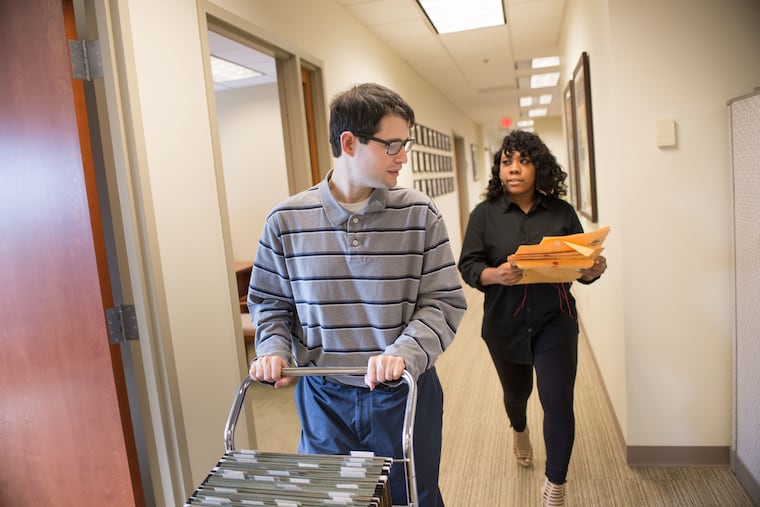Bringing neurodiversity to the workplace: 5 tips from the pros
"You just have to be committed to making it happen by continually inviting core staff into the decision-making process.”

Start at the top
To succeed in integrating neurodivergent employees into the workforce, “someone important needs to say, ‘This is important,’ ” said Ryan Hammond, executive director of the Eagles Autism Challenge. Philadelphia Eagles owner Jeffrey Lurie has made support and advancement of people with autism his organization’s mission, she said, and all activity flows from there.
Reach out to peers
“Businesses that already have supported-employment programs are usually willing to help others get started,” said Jay Culotta, treasurer at Wawa, which has had such a program for decades. “Just ask.”
Small is fine
“You don’t have to be an enormous business to make room for neurodiverse employees,” said Amanda Radcliffe, co-owner of Vertex, the tax-software company, which has 15 neurodivergent people on staff. “You just have to be committed to making it happen by continually inviting core staff into the decision-making process.”
» READ MORE: Philadelphia companies are changing lives by hiring employees with disabilities
Trust the process
Neurodivergent employees “usually have families behind them who want them to succeed on the job as much as you do,” said Lyn Strickler, executive vice president of Harmelin Media, where two employees with I/DD have been successfully employed for eight years. “Don’t be afraid to bring them into the process” if an issue arises on the job.
Inclusion is for everyone
Let neurodivergent employees know they belong by including them in the same company activities attended by their coworkers, said Karen Boyle, vice president of human resources at The Graham Co. “For the employee, it helps socialize them into the company culture — and it lets everyone else get to know them, too. The benefit goes both ways.”